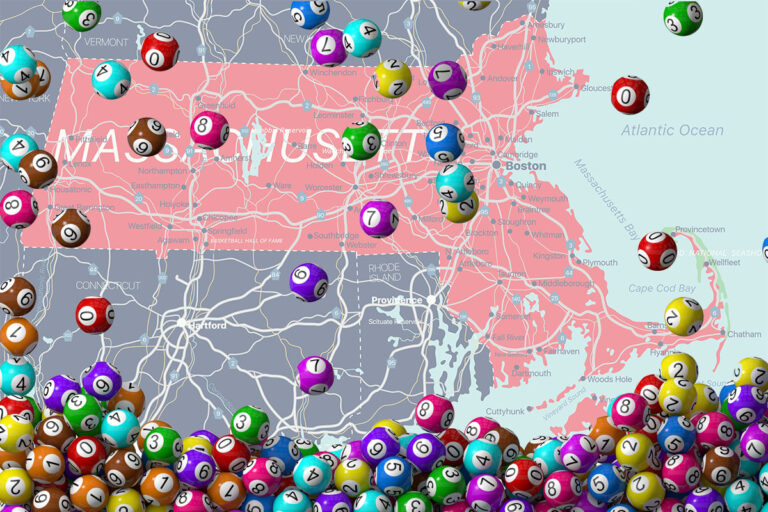
Provisions for an online lottery in Massachusetts are included in a $56 billion budget bill for 2024. Massachusetts House representatives approved the budget on April 26. The bill now moves to the state’s Senate, which rejected the similar inclusion of an iLottery in the budget last year.
House Democrats estimate that adding an online lottery will generate $200 million in tax revenue for the state. The budget would direct those funds to the Commonwealth Cares for Children grants.
These grants fund early education and childcare providers. Governor Maura Healy has indicated she supports an online lottery, and State Treasurer Deborah Goldberg has been pushing for such a measure for years.
Full-featured online lotteries, which include instant games, are currently available in six states plus Washington, DC. A further seven states sell only draw tickets through the internet, whether individually or by subscription.
Most states with instant iLotteries have seen an explosive growth in interest in the products over the years following launch. Georgia, the first state to adopt such games, has seen sales grow from $1 million in 2015 to $310 million in 2022.
Mixed Reactions to Online Lottery, Despite Retail Popularity
The average Massachusetts resident spends about $800 on lottery tickets annually. That makes it far and away the most lottery-enthused state in the US, with double the purchases of its closest competitor, New York.
As a result, the Massachusetts Lottery has generated over $1 billion in tax revenue for each of the last two years and $31 billion total since its launch in 1972. Gross sales have exceeded $5 billion annually for eight years running.
By all measures, the lottery has been a big success for the Bay State. Even so, taking it online is not an idea that’s popular with everyone. Small business owners fear the impact on their income. Retail lottery tickets make up a significant percentage of total sales at gas stations and convenience stores and bring customers in the door. Giving people the option to buy online would mean the loss of jobs in the sector, owners claim.
Senate leaders rejected the effort last year, in part because of such objections. There were also more general concerns about expanded gambling in the state. For instance, that ease of access would fuel a rise in gambling addiction. Such fears didn’t, however, stop the state from legalizing sports betting last year.
The Governor’s support means the Senate may feel more pressure this year to pass the budget with the online lottery language intact. Sen. John Cronin, the Senate co-chair of the Joint Committee on Consumer Protection and Professional Licensure, said the chamber is actively discussing the proposal.
Online Lottery to Include Responsible Gaming Features
Critics point out that since the launch of sports betting in Massachusetts earlier this year, calls to problem gambling hotlines have doubled. This is typically the case with any gambling expansion, but the reasons for that are complicated and not solely due to a rise in gambling addiction.
Moreover, Interim Executive Director of the Massachusetts Lottery Mark Bracken says the online lottery will include multiple responsible gaming features, such as:
- Credit cards are excluded as a payment option
- Self-exclusion features
- Self-imposed daily spending limits
Bracken also points out that many people don’t realize how much they spend on retail lottery tickets. One advantage of playing online is that it makes tracking your spending and setting a budget easier.
Marlene Warner, CEO of the Massachusetts Council on Gaming and Health (MCGH), emphasized that idea:
People can look at your normative behavior, they can look at how much you’re depositing, how much you’re losing, and messaging can be provided around all of that.
MCGH has stated that if the budget passes, it wants a seat at the table when it comes to setting regulations. The organization believes it can help make online lottery safer for those at risk of problem gambling.
Keeping Up With Sportsbooks… and Other States
The launch of Massachusetts sports betting has made the lottery’s calls for online sales more urgent. According to Bracken, iLottery games are needed to stay competitive with the sportsbooks, especially given how critical lottery revenue is to the state.
Treasurer Goldberg adds that the lottery is not currently positioned to compete with prominent sportsbooks like DraftKings. She points out that, while companies like DraftKings do pay taxes, they retain most revenue for their own profits, while lottery revenue goes directly to the cities and towns in the state.
In March, the market’s first month, online sportsbooks in Massachusetts contributed just over $9 million in tax revenue. That was not a full month of operation, and revenue is expected to grow. Even so, it’s much less than what the lottery brings to the state.
Bracken disputes that an online lottery will take away from retail sales. Instead, it will mainly attract a new generation of players looking for online convenience. He says that other states that have launched an online lottery have seen precisely that increase in sales and even a corresponding increase in customer visits to retailers.
Should the Senate approve the budget, Massachusetts would be the first state in two years to adopt an iLottery. Virginia was the most recent to do so in 2021, preceded by Rhode Island in 2020.





